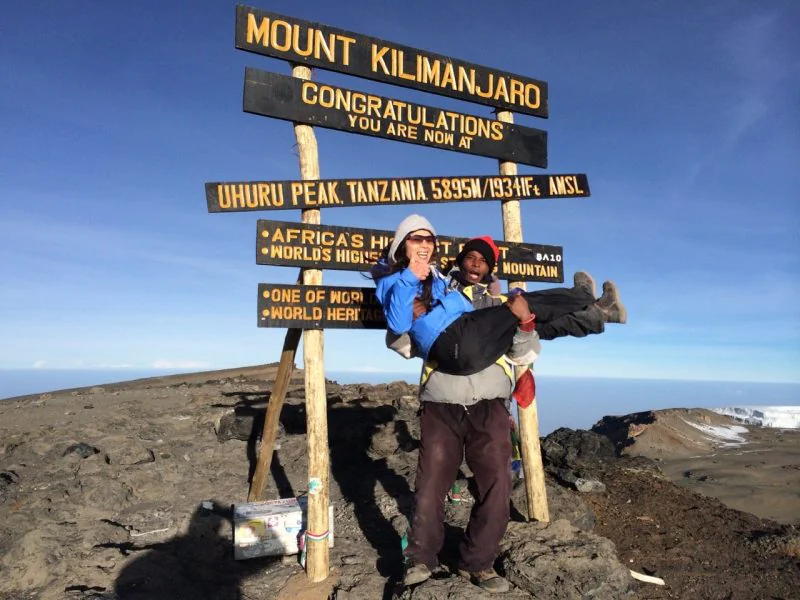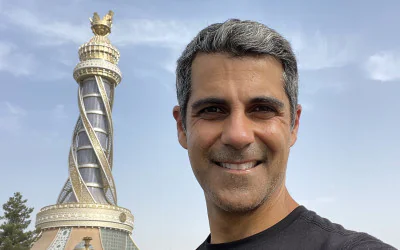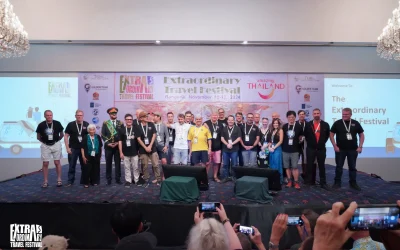Lucy is on her way to join the UN Masters ‘Club’ and we are sure she will get there soon. Of Vietnamese origin, this American teacher uses her travels to inspire and teach her students. She has many interesting hobbies and passions other than travel and she combines them all so well. Lots of you know her already as a dear travel companion, so here is a bit more about her and stories of her travels.
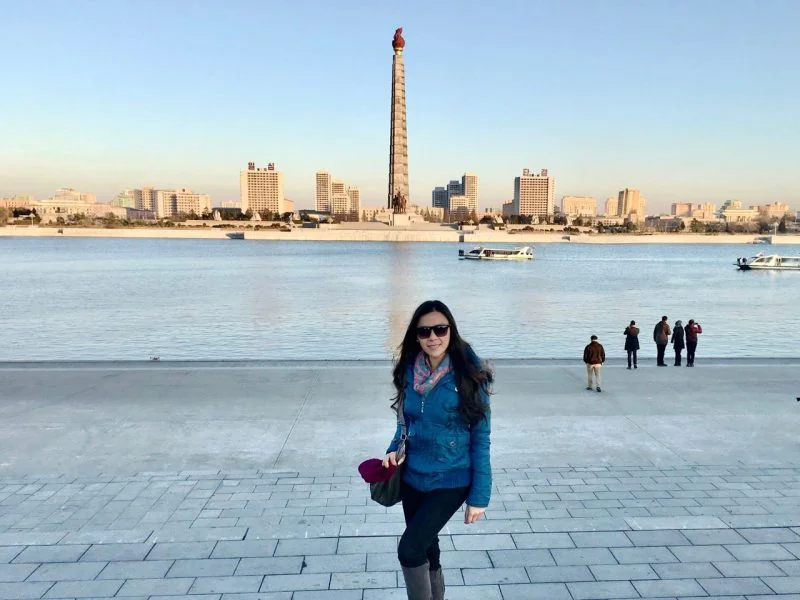
Lucy, tell us something about your early life and how did you become interested in travel?
Being the daughter of Vietnamese refugees, my childhood was very modest, so the idea of travel was a luxury we couldn’t afford but it still intrigued me. I was definitely impassioned to go to Asia someday to visit my parents’ hometown. Because my whole family fled Vietnam by boat and later, through refugee sponsorship, they were split up into various countries spread all over: United States, Sweden, Denmark, Canada, Vietnam, and China. This was one reason I aspired to travel to see different parts of the world and visit different relatives internationally.
As a young student, I loved Geography and World History. I also had a fascination with maps, globes, and mysteries of the world. I remember devouring books about the Bermuda Triangle, the Egyptian Pyramids, Stonehenge, the Nazca Lines in Peru, the giant Moais of Easter Island, the Loch Ness Monster, and the Yeti of Nepal. I dreamt of visiting all of these places, and I’m happy to share that I did manage to accomplish this in the past 20 years.
When I was 22, having finished university and gotten a “grown-up job,” it was one of the most exciting things to get my first passport and to finally be able to afford my first trip overseas!
I went to Italy, the UK, France, and Switzerland. The highlight of my first trip was seeing the Roman Colosseum, the Sistine Chapel, the Louvre, and Stonehenge. When I became a teacher, my favourite subject to teach was Ancient History, and I aspired to visit the greatest Ancient Civilizations around the globe. I often bring back artefacts and pictures to show my students, and I love watching their curiosity about the world grow.
There’s a generalized sentiment that students in the United States do not learn enough geography and world events, and I want to change that by starting with my own classroom.
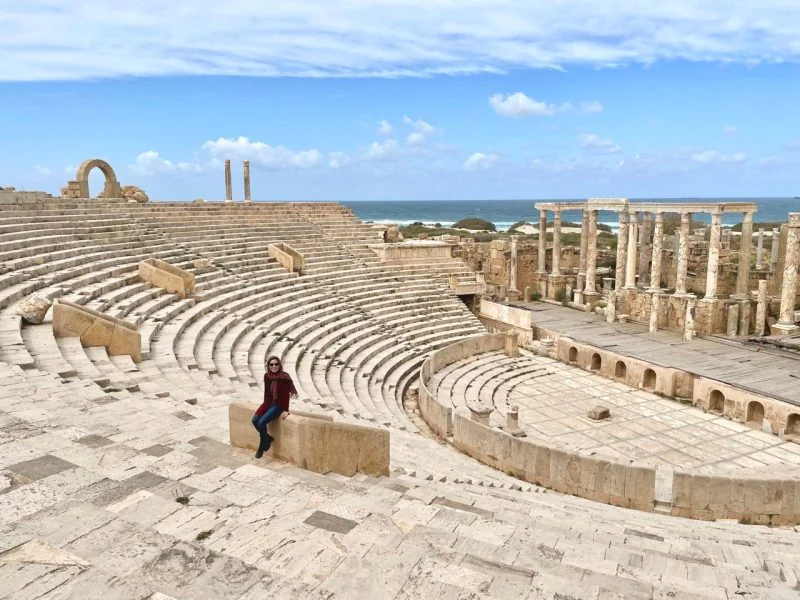
What is your most preferred style of travel and why? When you travel, what are your biggest interests?
I look back to 20 years ago when I first started travelling when I was on a tight budget as a recent graduate. To keep trips affordable, I often resorted to backpacking, local buses, hostels, and homestays. That’s also when I started looking into teaching abroad and volunteer exchange opportunities.
With American schools closed June-August, I spent these summer breaks teaching or volunteering in new regions. I made time to explore neighbouring countries wherever I was based that summer. I also liked having the chance to stay with local families and really get to know the community and way of life through an authentic exchange.
Aside from immersion in local communities, I mentioned earlier that I love ancient history and civilizations. I find exploring ancient ruins and old towns the most captivating. Now, 20 years later, although I can afford a decent hotel, I still find myself enjoying homestays and volunteerism for cultural exchange, and I still have the greatest appreciation for ancient ruins and UNESCO sites.
In the last 10 years, I developed a love for mountaineering and hiking, so I’ve incorporated more trekking trips to reach the highest summits in different countries. Some of my favourite and highest treks have been: Mt. Kilimanjaro, Everest Base Camp, Mt Tiede of Spain, Kazbek in Georgia, and Gerlachovsky Peak in Slovakia.
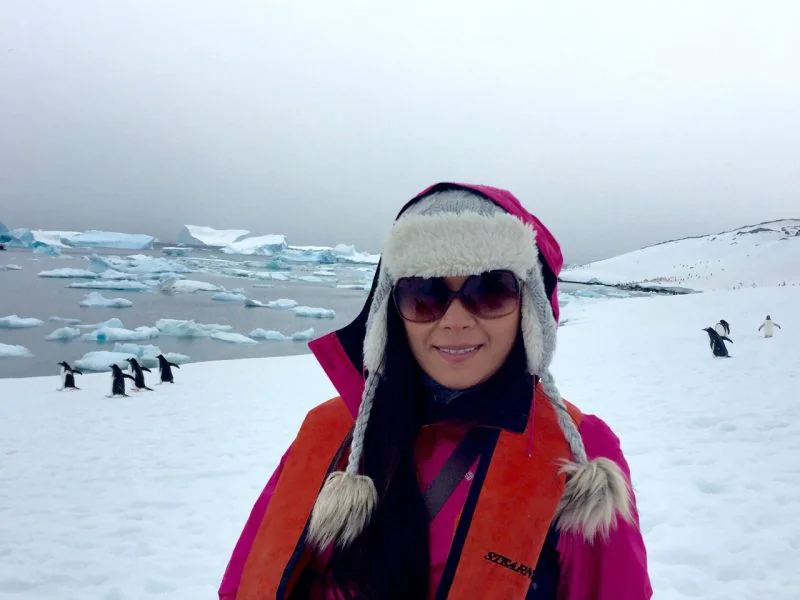
Could you share some travel stories with us, the ones that stay deep in your head and heart?
Some of my favourite travel memories are from the year 2015-2016 when I left my job in California to live in Africa for 6 months and Asia for 6 months. Being able to travel freely without constraints was very liberating. There was no concern for time and where I had to be. All my possessions were in a backpack, which highlighted how little I needed to feel content.
My longest time in one place was spent in Kenya, where I settled in a township called Githurai for 6 months. At the time, Githurai was one of the toughest slums outside of Nairobi. I joined a community-based organization there. It was such an enriching time where I learned so much about community development. I took advantage of this extended period in East Africa to visit the most notable places I’d ever dreamed of visiting.
Some of my favourite memories from this time include camping in the Ngorongoro Crater while on a safari in the Serengeti, reaching the summit of Mt. Kilimanjaro, trekking in Uganda to see the mountain gorillas, dancing with the Maasai in Kenya, encountering lemurs and magnificent Baobabs up close in Madagascar, visiting the Rock-hewn Churches in Ethiopia, and swimming in the white sand beaches of Zanzibar and Seychelles.
After 6 months in Africa, my time in Asia was equally fulfilling as I settled in Myanmar for 5 months. I lived in Tahan, a small rural community, in an orphanage with 20 children of all ages. I spent my time developing educational programs and expanding the orphanage to include a bilingual preschool. While living in Myanmar, I took short trips to explore neighbouring countries.
My favourite memories include: hiking to Tiger’s Nest in Bhutan, a safari in Bangladesh to see the Bengal tigers, and riding Bactrian camels in the Gobi Desert where I stayed in a Yurt. It was a year of discoveries on many levels. The living conditions were basic, without running water, a proper sewage system, or reliable electricity, yet it was the most enriching time of my life. Being far away from friends and family, I hardly felt alone; instead, I felt completely embraced by my new community everywhere I went.
My realisation became obvious – how connected and alike we humans are regardless of where we come from. With few possessions and no real home, I felt more at ease than I had ever felt. It was a phenomenal year. It was my first time truly understanding the phrase: “When you’re at peace, any place is home.”
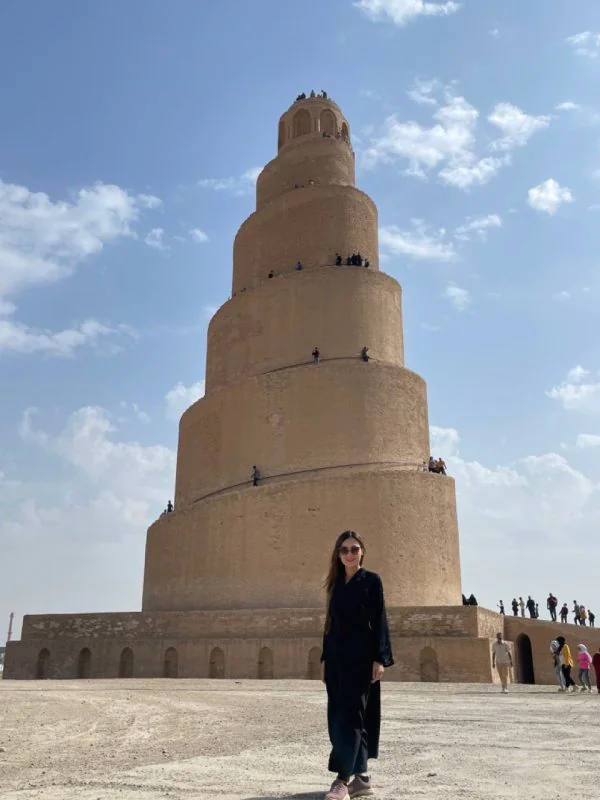
What is it about the travel that gets you excited the most and what keeps you going even when it is tough?
The world is so vast, varied, and breathtaking! What keeps me going is knowing I will most certainly encounter some extraordinary experience, sight, or interaction. I think we often imagine what a destination will be like, only to be surprised and challenged. I try to fully soak in the destination, all my observations, and all the sensory details without judgment.
People often ask me “Is there a place you do NOT like?” I guess my best response is that I fully appreciate the destination and the experience for what it is. Even when I’ve been in some tough places (maybe the living conditions are rough, it’s difficult to navigate, or the people are unfriendly), I find it easy to overlook because I know my time is limited, and I cherish my time spent soaking it all in, rather than lamenting. I mostly feel deep gratitude for the privilege to travel somewhere, knowing that opportunity can be rare or may not occur again.
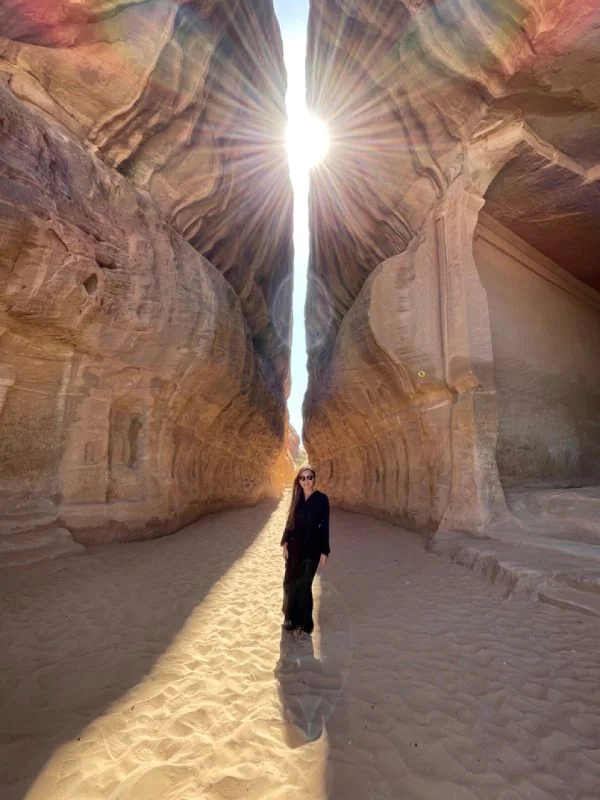
There is a stereotype that travel is only for free and wealthy people. For many, dreams about travel remain just a dream. What would you recommend for people with a low budget? For sure there are tricks you’ve learned to see the world and still not spend a fortune?
In my 20s, I was looking for ways to afford more travel, and I started becoming more versed in earning travel points by using certain credit cards. Every year, I earn several international flights and free hotel stays by redeeming points. There are many low-budget airlines these days, for those who don’t mind forgoing some comfort.
Hostels have been a good option for my low budget. I often found hostel stays costing only $5 or less per night, often providing free breakfasts, information on local bus routes, and affordable shared transportation options. I also met experienced backpackers who exchanged valuable tips with me.
I mentioned earlier about teaching abroad and volunteer exchange. The website that I have mostly used over the years is https://www.workaway.info/. It has helped me connect with community-based organizations all over the world. Currently, they have hosts in over 170 countries! What makes Workaway.info different is that volunteers and local hosts do not pay expensive fees to connect with each other. The hosts are usually small grassroots organizations living in and working directly in local communities.
I have made many lifelong friends through Workaway, both with other volunteers and with hosts who I lived with. I’ve had the privilege of watching organizations grow and expand over the years, and even returning to revisit former organizations that I still support. I’ve never had to pay expensive “placement fees” or “administrative fees” to big companies to arrange assignments for me.
The website allows me to connect directly with the community-based organization, read reviews from previous volunteers who stayed with the hosts, and I can search which country I want to work in and specifically what type of work I want to do.
Over the years, I’ve mostly worked in an educational capacity, but I’ve been involved in a vast variety of projects, including environmental projects, animal conservation, horticulture, construction, micro-financing grant-writing, and more.
Growing up, I believe all the riveting stories of my parents’ harrowing experience as refugees deeply impacted me, so I have often been drawn to opportunities to get involved with supporting displaced people in similar situations. Some of my most memorable experiences were volunteering in Lebanon to provide medical aid to Syrian refugees and providing educational services to Congolese refugees in Kenya.
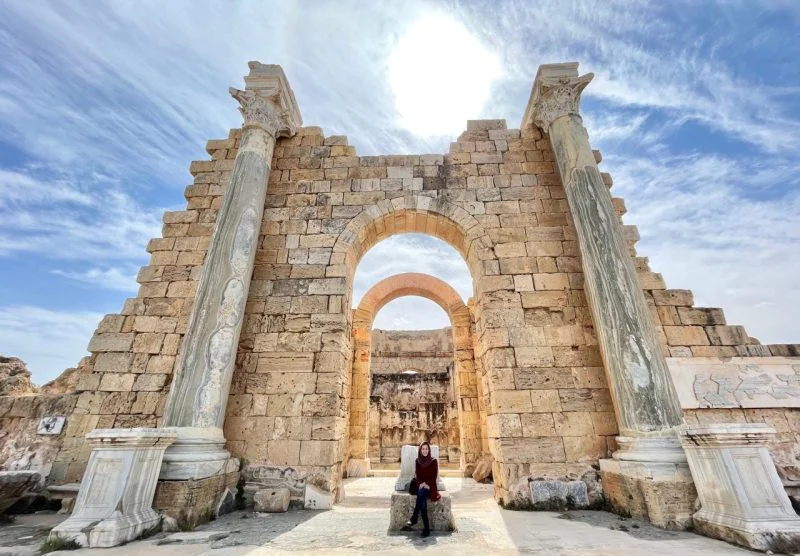
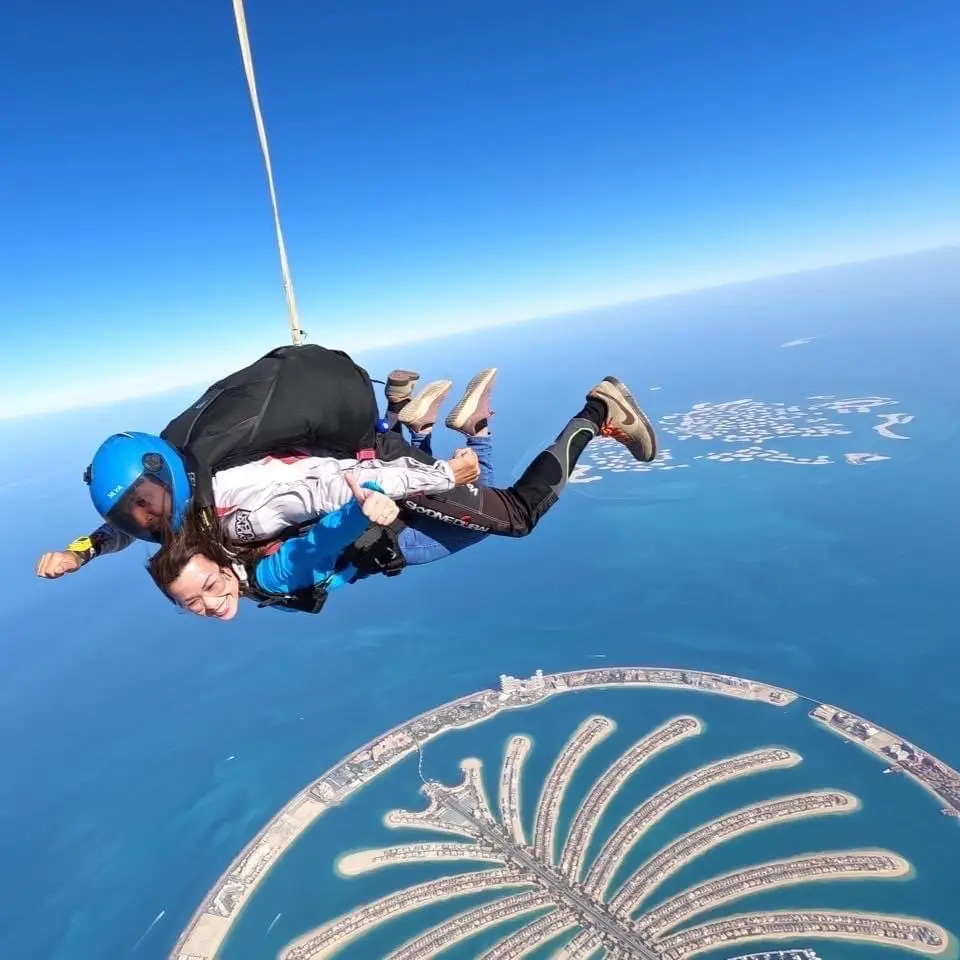
Which culture/country is the closest to your mentality and which is the most alien, and why?
Born and raised in the Silicon Valley of California, my life revolves around efficiency and productivity. Life is fast-paced, punctuality is valued, schedules are packed, and deadlines are tight. Being in big, developed cities reminds me of home, which is probably why I usually don’t find my time travelling to big cities to be the most captivating. This is probably why I’m more drawn to secluded places and being fully entrenched in nature.
I like being in rural places where technology and cars are limited. I cherish time spent in villages or places where people live communally and simplistically, being away from technology. It’s a welcome reminder of how much joy and comfort can be derived even when we have very little. I find it very refreshing to share laughs with happy people who don’t care for luxuries, materialism, and the excesses of the civilized world.
Some of my favourite experiences living in a more primitive and communal place include: living in a small yurt with a Mongolian family in the Gobi Desert, camping with the Mundari Tribe in South Sudan, dancing with Mudmen of Papua New Guinea’s Asaro tribe, cooking with the Maori people in New Zealand using a hangi underground oven.
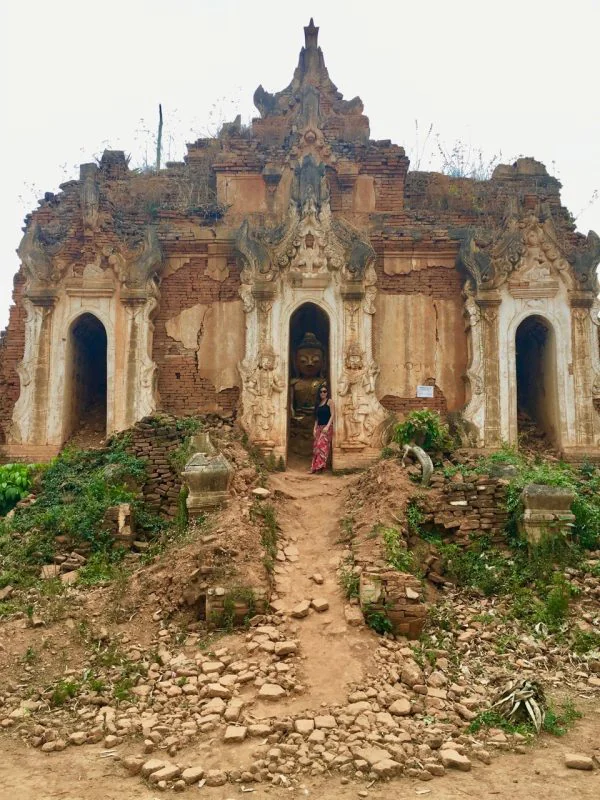
So what are your most recent trips and your travel plans for 2022?
My next trip will be in June 2022 to Medyka, Poland (this interview was done in May 2022). Currently, back home in California, I’m working with an organization that packs and ships food to Ukraine. I am looking forward to being in Medyka and personally joining volunteers onsite to provide meals and supplies to displaced Ukrainian families.
Aside from travel, I have many other passions such as running, trekking, yoga, and music. I have a few trips planned for 2022 that incorporate these hobbies of mine. In August I will be with a mountaineering group to climb Mt. Whitney (the tallest peak in the United States). In November, I plan to run the Athens Marathon in Greece.
In December, I will return to India for the 4th time. India is a special place to me, as I’ve spent extended time there to refine my yoga practice while earning my certification as a Global Alliance Yoga Instructor in Rishikesh, the birthplace of yoga. This December, I have been invited back to India to teach yoga to children in underserved communities. While there, I intend to combine both my Music degree and Yoga license to create a dual program. And of course, in October, I plan to be in Armenia for the Extraordinary Travel Festival!
I’m still awaiting a few countries to open their borders so I can complete my goal of completing 193. Currently, I only have 6 countries left: Syria, Eritrea, Kiribati, Micronesia, Marshall Island, and Nauru. If they open in 2022, I would love to join the esteemed ranks of UN masters who have inspired me over the years.
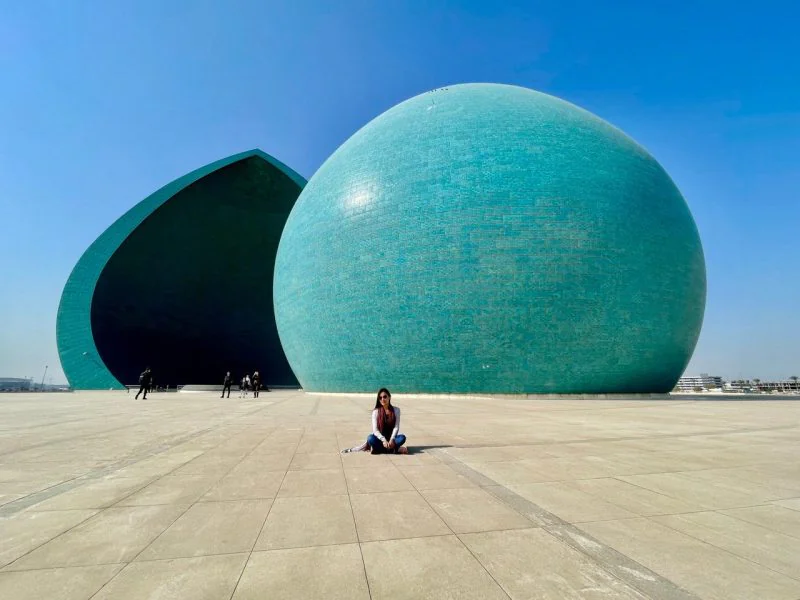
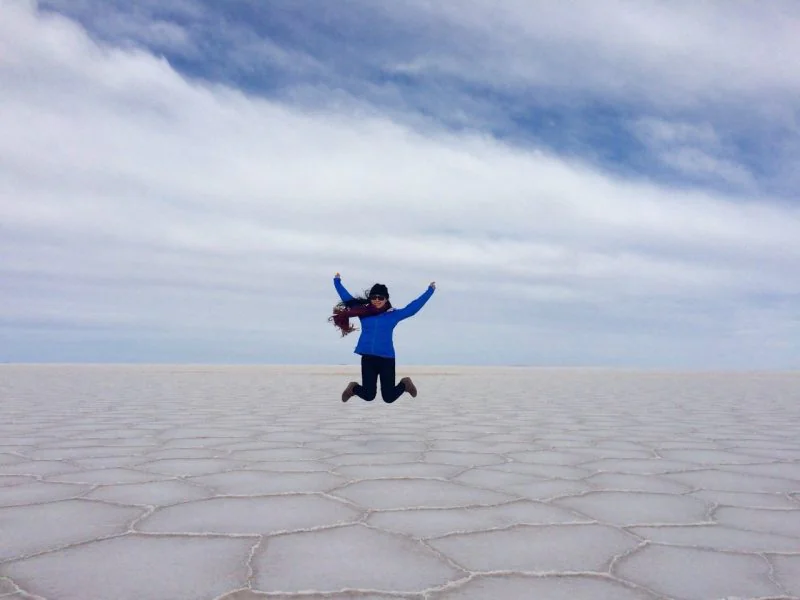
Have you ever been in an extreme situation? Tell us about some of the most exciting.
The most extreme situation in recent years was being detained at a checkpoint for many hours in the southern part of mainland Yemen. My female friend and I had unfortunately drawn attention to ourselves as travelling foreigners with our faces uncovered. We had an inexperienced guide who advised us poorly.
As a result, we probably engaged with the guards at the checkpoints too much, stopping for conversation, and even having tea, and posing for pictures with them. Finally, a higher-ranked official called ahead to a main checkpoint a few miles away. As we arrived, we expected to be questioned, and my friend and I made sure we prepared clear and matching explanations. Fears and worries came to mind, as we had no idea what was going to happen to us.
We explained that we were meeting other travellers in Seiyun, preparing to board the next flight to Socotra Island for a tour. We were reassured we were not journalists or politically affiliated, and we had no intention of going toward Sana. At first, they were suspicious and some guards urged us to head back toward Salala, Oman from where we came. We had to explain ourselves to a few higher-ups.
Finally, they put us on the phone with an American diplomat who also questioned and lectured us harshly. We finally convinced them we were harmless and didn’t plan to put ourselves in any dangerous situations. In the end, the higher-up authorities finally gave us permission to continue our journey. We were pleasantly surprised when they apologized for keeping us so long. In the end, they gave my friend some treatment and medication for her injured hand, since she had some carpal tunnel pain she had incurred prior to the trip.
Altogether we had been held for more than 4 hours, and it was close to 10 pm by then. The guards surprisingly and graciously insisted on bringing us dinner for keeping us so long. Our worries finally vanished by that point and we accepted the offer. When they presented us with our dinner, we were so touched… yet amused!
They had specifically requested the chef to make us hamburgers, french fries, and fried chicken, while we were expecting a local meal with Yemeni tea! Obviously, they brought what they perceived as an “American dinner” to suit our tastes. We found that incredibly hospitable, ironic, and sweet.
We did finally make it to Socotra after that!
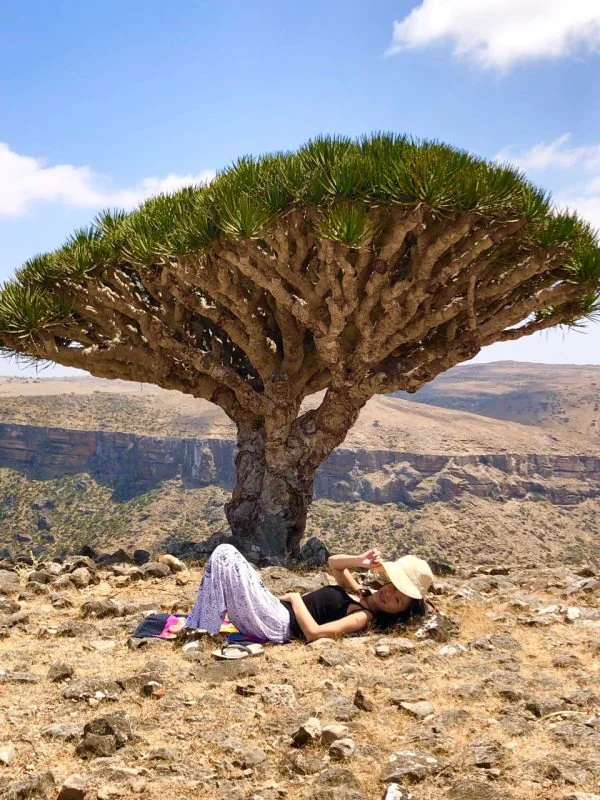
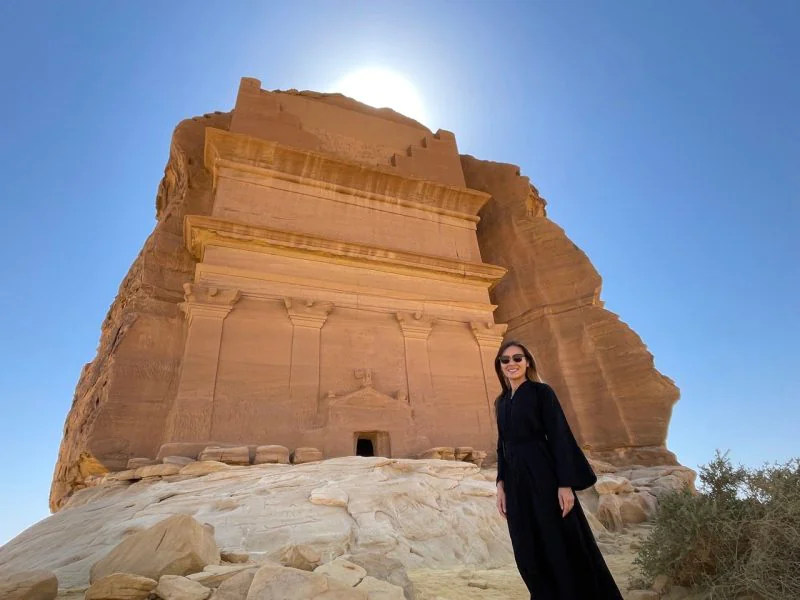
Finally, our signature question – if you could invite any 4 people to dinner, from any period in history, who would your guests be and why?
I would certainly choose Amelia Earhart. As a little girl, I was mesmerized by her life story and greatly inspired by her courage. I look up to her as a hero who rejected constrictive social norms and inspired women to follow their dreams. In fact, she was a big inspiration for me while I studied to get my pilot’s license. I achieved that in 2011 for my 30th birthday.
Another intriguing person I would choose is Frederic Chopin, who is my favourite composer. His music captivated me my whole life and made me fall in love with playing the piano as a child. I later earned my degree in Music while studying at UC Berkeley. Chopin’s music even carried me through difficult times over the years. Whether performing or competing on stage or teaching my own piano students now, I still prefer Chopin’s pieces over others.
I would love to meet Mother Teresa. Her life both inspires and baffles me. The public was often captivated by her loving words and obvious acts of compassion; yet I feel her internal struggles, conflicts, pains, and regrets would be fascinating to hear. She had written a series of “Dark Letters” that I would want to discuss with her.
Most of all, I would love to have dinner with my paternal grandfather. He passed away in 1977 in Vietnam, before I was born. He is the only grandparent who I never got to meet, and having the chance to see him and talk to him would give me fulfilment, like completing a missing piece of my puzzle.
